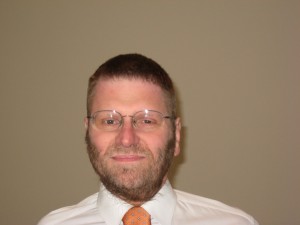This user has not added any information to their profile yet.
Dr. Curt Balch received his PhD and postdoctoral training from the University of Cincinnati, prior to eight years of service as a research faculty member at the Indiana University School of Medicine, where he performed extensive research in cancer epigenomics. In mid-2013, Curt founded a biomedical consulting company, Bioscience Advising, LLC (Indianapolis, IN), and he is also a member of a multidisciplinary research coalition, the Complex Biological Systems Alliance. Curt’s primary research specialty is the identification of aberrant chromatin modifications that govern dysregulated gene expression in cancer, and the possible reversal of those anomalies by epigenetic therapies. In translational research, he coauthored two reports of a phase I/II clinical study of a DNA methylation inhibitor, combined with conventional chemotherapy, in advanced stage, drug-resistant ovarian cancer patients. In more basic research, Curt utilized systems biology/bioinformatics approaches to integrate the epigenomic, transcriptomic, and genomic anomalies that govern specific malignant phenotypes (e.g., the “epithelial-to-mesenchymal transition,” etc.), allowing the identification of specific “regulatory networks” that control tumor progression. In particular, Curt independently demonstrated that a “histone deacetylase inhibitor,” via alteration of mRNA- and microRNA-encoding gene expression, could attenuate/reverse several oncogenic processes in (concomitant with augmentation of tumor suppressive pathways) in ovarian cancer. Overall, Curt hypothesizes that the now accepted, differentiation state “reprogramming” of even highly aggressive cancer phenotypes is regulated by chromatin remodeling that is in turn, influenced by the tumor microenvironment. Consequently, elucidation of the distinct epigenomes that drive the aberrant differentiation that governs tumor progression (possibly initiated by “cancer stem cells”) may allow for epigenetic (or stem cell) therapy-based reversal of pathological chromatin remodeling, resulting in the restoration of normal, terminally differentiated tissue phenotypes.
To learn more, visit:
www.linkedin.com/in/curtbalch/
www.bioscienceadvising.com
www.cbsaimtt.com


